INDIA vs BJP: What Modi’s underperformance means for a resurgent opposition alliance
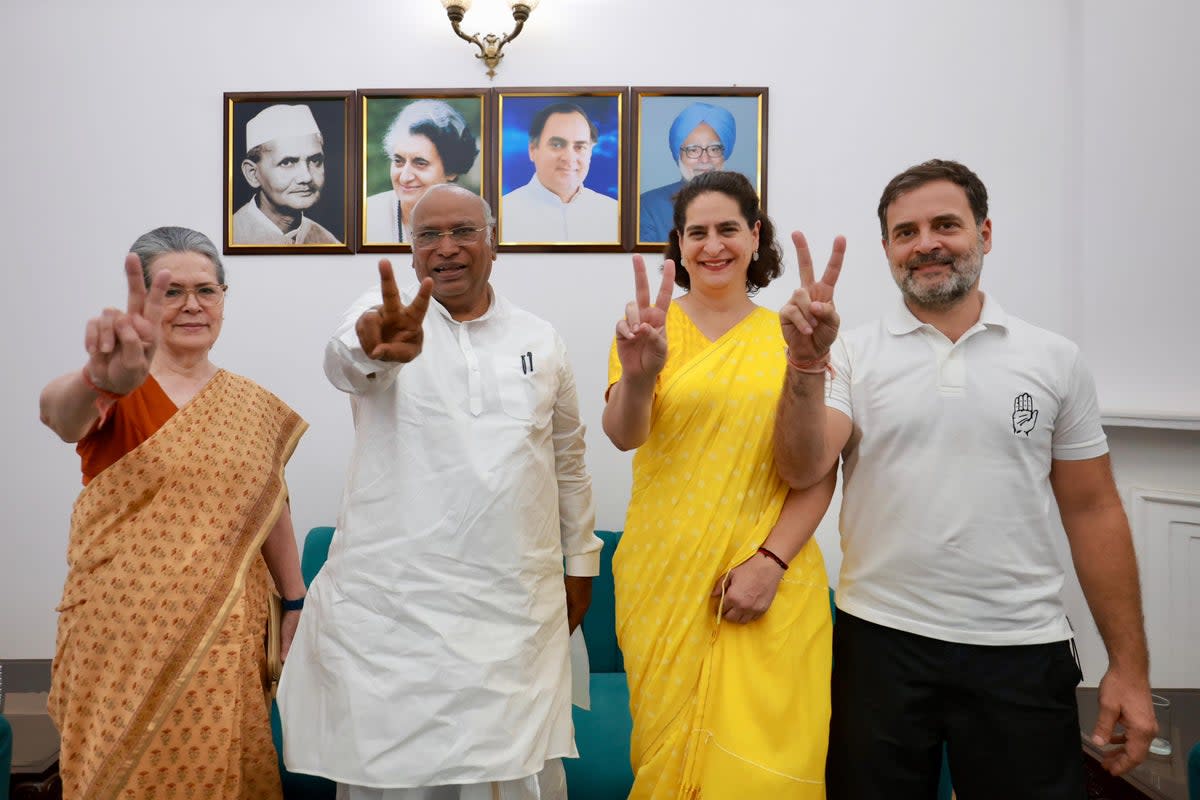
The mood is electric inside a packed Congress party headquarters in Delhi as activists and workers jostle to get a glimpse of Rahul Gandhi, who arrives at the podium with a red pocket-size edition of the Indian constitution in his hand.
He utilised this prop throughout the election campaign as he warned that a third straight Narendra Modi landslide would allow the Hindu nationalist BJP to rip up the country’s constitution and declare India a Hindu state.
The landslide never materialised, and Modi is now in the process of agreeing a coalition government that will force him to rely on allies for his majority, a limited mandate that could have far-reaching consequences for the next five years.
Follow our live coverage of 2024 Indian elections.
Congress and its allies still came second to Modi’s National Democratic Alliance (NDA) – but you would never guess it based on the atmosphere here on Tuesday night, where the party’s workers declared the INDIA bloc’s unexpectedly strong 230 seats the start of the country’s “second independence movement”. This time the independence is not from British colonialism, but from what they call Modi’s “hate politics”.
This is a struggle, they say, that is once again led by a Gandhi, whose family played a key role in India’s original freedom movement.
“The country has unanimously and clearly stated we don’t want Modi and [his aide and home minister Amit] Shah to rule this country. I’m extremely proud of the people of India who have resisted this attack on the country,” 53-year-old Gandhi tells a room packed with reporters. Gandhi, who comes from a family that has given India three prime ministers, including its first, thanks India’s poorest voters for restoring the country’s faith in democracy.
Outside the Congress headquarters, as dusk gathers in the hot and humid capital in the grip of a severe heatwave, people dance to dhol drumbeats. The atmosphere of festivity among workers, despite an election loss, comes after months of tension and apprehension as pre-poll surveys, experts and exit polls all pointed to another big BJP majority.
Tuesday’s result will keep Congress in opposition but give it a much louder voice in parliament and a bigger say in passing of critical legislation. Modi’s aura of invincibility has been shattered, as he must rely on previously fickle alliance members to pass policies.
“It is clear that Modi fatigue has set in in India,” Indian political economist and author Parakala Prabhakar tells The Independent. “This is a decisive rejection of the divisive agenda that Modi has been canvassing for the past few months with his policies and hate speech. By claiming to capture 400 out of 543 seats, he made the minorities feel that he is out to change the Indian constitution.
“This election, the dice were loaded against the BJP. India is facing acute rural distress, steep price rises, spiking unemployment rate and, instead, Modi got carried away by the stock market, by NRIs [non-resident Indians] praising India or some western CEO’s comment on India. The opposition has to now undo this damage of 10 years,” Prabhakar says.
The Congress party in particular has emerged from the ashes with this result, almost doubling the number of seats it won in 2019, a performance five years ago that had pundits questioning the grand old party of India’s future existence.
To maintain this momentum and ultimately dethrone Modi, the INDIA alliance needs to understand that “it is the victory of the people against autocratic tendencies displayed by the Modi government”, Prabhakar says.
Modi, 73, stood at the forefront of a Hindu-first campaign by his right-wing party as he hoped to seek a landslide victory riding a populist wave.
The unexpected neck-and-neck fight sent the Indian markets into shock, wiping $25bn from the wealth of industrialist – and perceived Modi ally – Gautam Adani, and confirming that Modi’s BJP finally has a formidable opponent, political observers say.
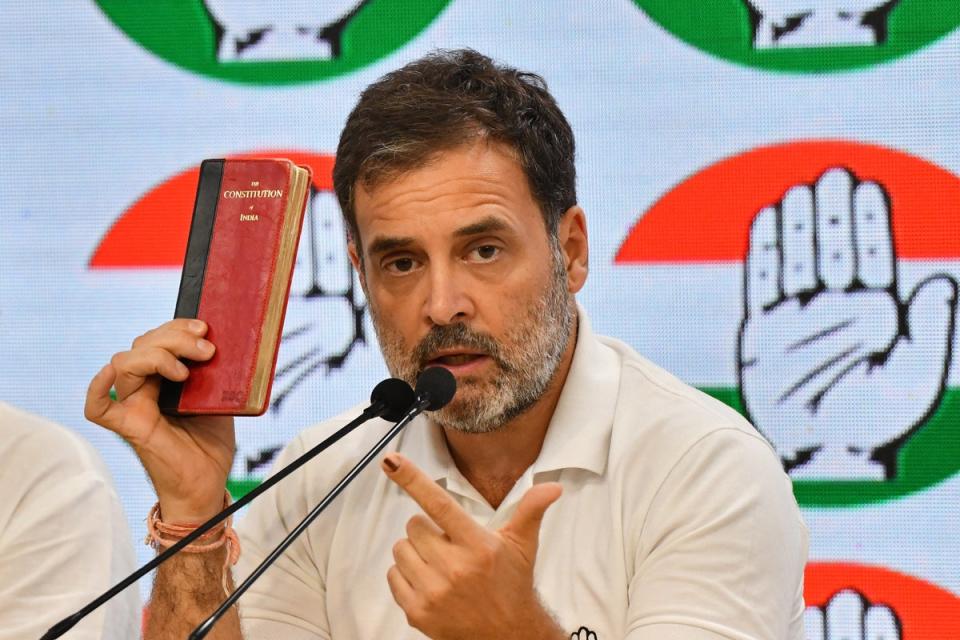

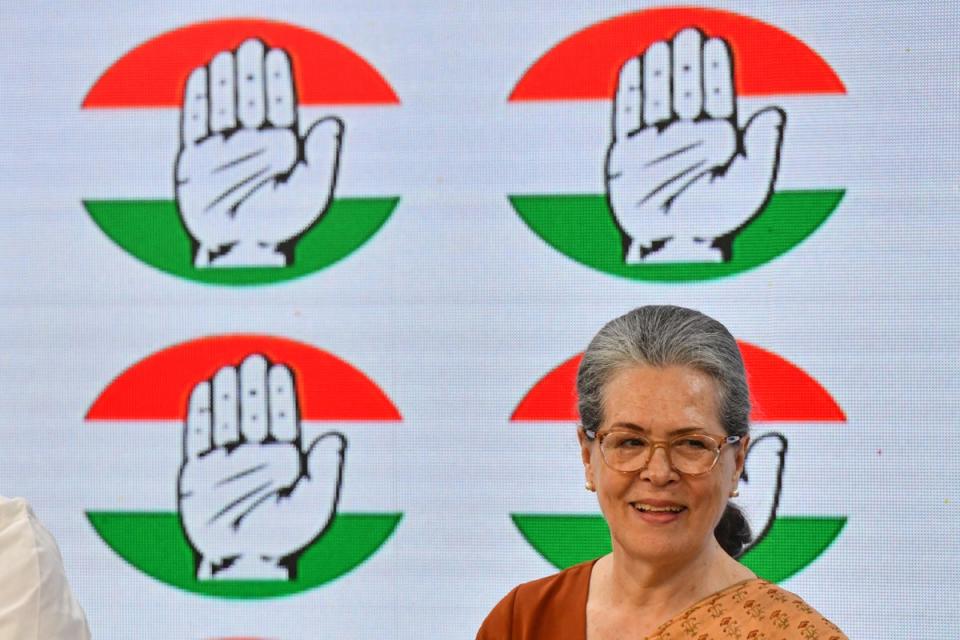
What’s most remarkable is that the INDIA alliance’s performance came despite an increasingly hostile environment created by the Modi government, which used the agencies of state to seize the Congress party’s funds, jail some of the INDIA bloc’s best-known leaders, and create an atmosphere of threat against critical NGOs and media.
“Modi had threatened in a political rally that after 4 June, all opposition leaders will be in jail,” says Congress chief Mallikarjun Kharge.
Modi’s biggest political rival in New Delhi, Arvind Kejriwal from the Aam Aadmi Party, returned to jail on Sunday even as the exact charges against him, relating to a now-scrapped liquor policy, remain unclear.
Kejriwal’s spokesperson Akshay Marathe tells The Independent that Modi “made every attempt possible to undermine democracy in India” and the Indian opposition will now be in a position to undo that damage.
“Those who BJP ran roughshod and took for granted have hit back and humbled them. INDIA alliance will make all attempts to form the next government to ensure the democratic backsliding can be arrested and India can be put back on track for a peaceful, federal, collaborative political system that values diverse voices instead of muzzling them,” he says.
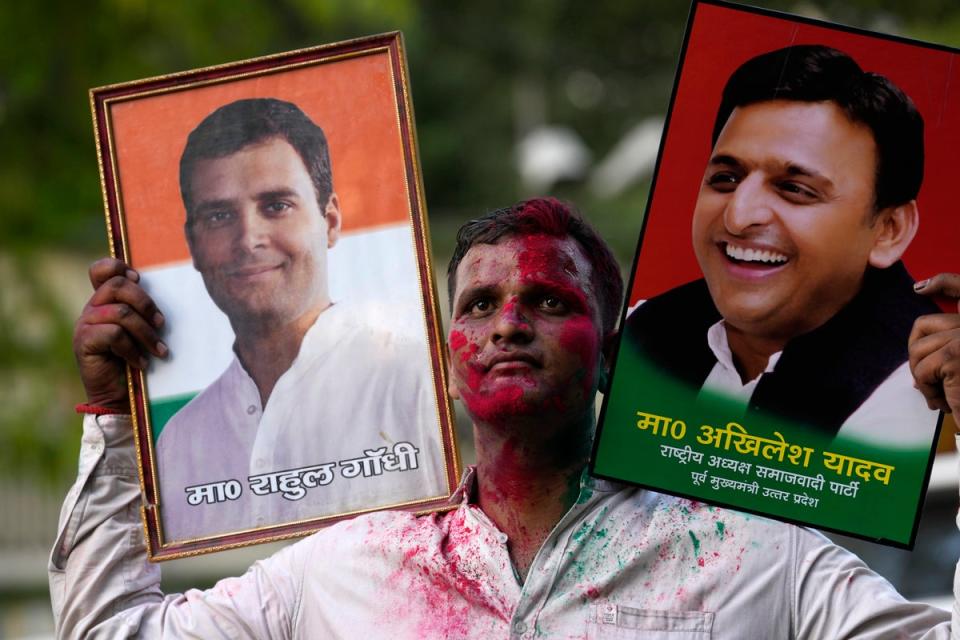
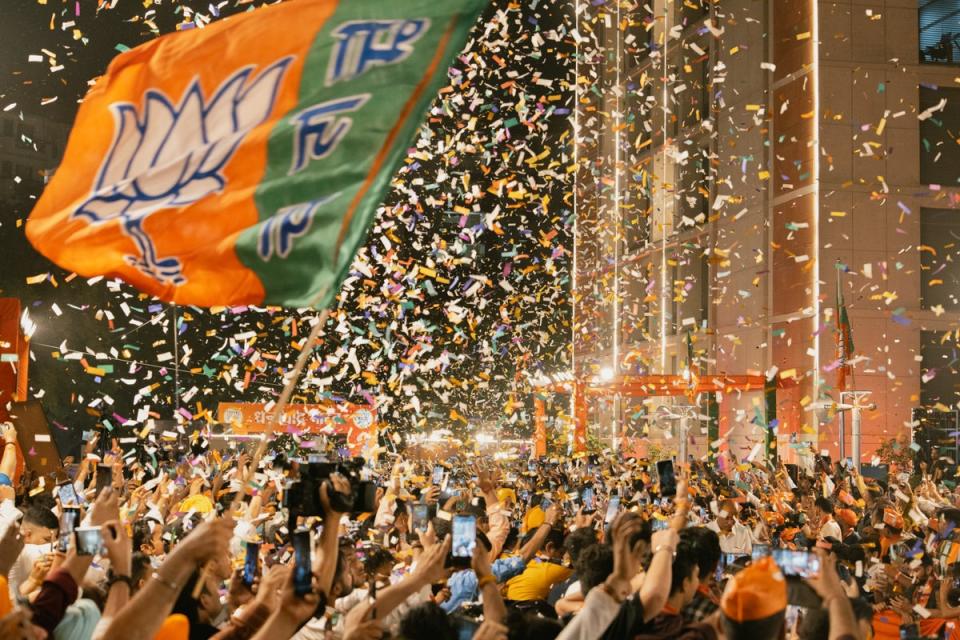
“India was in danger of becoming a one party state like Gujarat [Mr Modi’s home state] is. A democracy in name but with the opposition and its institutions existing in sufferance. This appears to have been averted,” says Aakar Patel, chief of Amnesty International’s India wing.
“The whole of civil society wishes for a reversal of discriminatory laws and malicious arrests that will likely take longer given that the BJP will remain in government for now,” he says.
Although Modi’s party faced some humiliating losses in results across India, the most surprising one was in Ayodhya, where he built a mammoth shrine to Hindu deity Ram on the site of an illegally demolished mosque. Modi’s minister for women and child development, Smriti Irani, also lost her seat in a heated contest in Uttar Pradesh – for the past 10 years a bastion of the BJP.
“Once someone is in power for so long and has such an overbearing personality, no one goes and tells them the truth from the ground,” Prabhakar says.
This plays into the INDIA alliance’s ability to crack Modi’s armour, one political blow at a time, and with Tuesday’s results, the countdown has begun, he says.
The INDIA alliance can also recruit BJP’s alliance members by offering them tempting roles, experts suggest.

“Modi and Shah have no winning manners, they got used to slamming its own people rather than praising them, persuading them, appreciating their contribution to the party alliance,” Prabhakar says, adding that this is a chance for smaller NDA allies to switch camp to Congress.
Congress and INDIA members, including potential allies from the BJP camp, have the responsibility to build more pressure on Modi in parliament, analysts say.
For now, a cautious INDIA bloc says it closely guarding its political strategies. “Modi ji is watching,” Kharge says.
“The political leaders have now realised that they have to stick together and if they don’t and the BJP comes back to power, then the same behaviour would be there,” says Arun Kumar, former professor of economic studies and planning at India’s Jawaharlal Nehru University.
He says Congress and its allies must now use their strong numbers in the Indian parliament to protect millions of voters, who have trusted them to stand up to the more ambitious and divisive BJP manifesto pledges.

 Yahoo News
Yahoo News 
